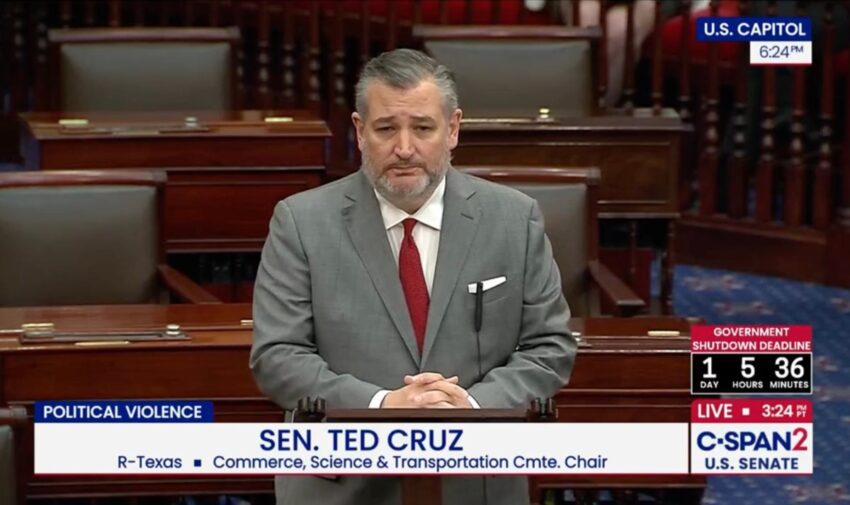
ted cruz blocks bill that would extend The recent decision by Senator Ted Cruz to block a significant privacy bill has stirred considerable debate regarding data protection in the United States.
ted cruz blocks bill that would extend
Overview of the Blocked Bill
The proposed legislation aimed to extend privacy protections to all Americans by preventing data brokers from selling personal information without consent. This would have marked a substantial shift in how personal data is handled, moving beyond the current protections that primarily apply to federal lawmakers and government officials. The bill sought to create a more equitable framework for data privacy, ensuring that every citizen’s personal information would be safeguarded against unauthorized sales and exploitation.
Key Provisions of the Bill
The bill included several critical provisions designed to enhance privacy protections:
- Consent Requirement: Data brokers would be required to obtain explicit consent from individuals before selling their personal data.
- Transparency Measures: Companies would need to disclose what data they collect and how it is used, providing individuals with clearer insights into their data footprint.
- Enforcement Mechanisms: The bill proposed penalties for companies that failed to comply with the new regulations, ensuring that there were consequences for violations.
- Broader Applicability: Unlike existing laws that mainly protect government officials, this legislation aimed to extend these protections to the general public.
By blocking this bill, Cruz has effectively maintained the status quo, where data brokers operate with minimal oversight and individuals have limited control over their personal information.
Implications of the Block
The implications of Cruz’s decision are far-reaching, particularly in an era where data privacy is increasingly becoming a pressing concern for many Americans. The failure to pass this bill means that data brokers will continue to have the ability to sell personal information without the consent of the individuals involved. This raises several important issues:
Impact on Personal Privacy
Without enhanced protections, individuals remain vulnerable to a range of privacy violations. Data brokers often collect and aggregate information from various sources, creating detailed profiles that can be sold to advertisers, political campaigns, and other entities. This practice can lead to targeted advertising that some may find intrusive or even manipulative.
Potential for Identity Theft
In addition to privacy concerns, the lack of stringent regulations increases the risk of identity theft. When personal data is freely available, it becomes easier for malicious actors to exploit this information for fraudulent purposes. The bill’s failure to pass means that individuals will continue to face heightened risks associated with identity theft and fraud.
Public Trust in Government
The decision to block the bill may also erode public trust in government institutions. Many citizens expect their representatives to advocate for their rights, particularly concerning privacy and data protection. By blocking legislation that would have enhanced these protections, Cruz’s actions could be perceived as prioritizing the interests of data brokers over the privacy rights of everyday Americans.
Stakeholder Reactions
The reaction to Cruz’s decision has been swift and varied, with stakeholders from various sectors expressing their views.
Supporters of the Bill
Advocates for privacy rights, including consumer protection groups and civil liberties organizations, have condemned Cruz’s actions. They argue that the bill was a necessary step toward safeguarding personal data in an increasingly digital world. Many supporters believe that the current lack of regulations allows data brokers to operate without accountability, putting consumers at risk.
Critics of the Bill
On the other hand, some critics argue that the bill could impose excessive regulations on businesses, particularly small companies that rely on data for marketing and operational purposes. They contend that while privacy is important, overly stringent regulations could stifle innovation and economic growth. Cruz has echoed these sentiments, suggesting that the bill could hinder the ability of businesses to operate effectively.
Political Ramifications
The political ramifications of this decision are also noteworthy. Cruz’s actions may resonate with his base, particularly those who prioritize free-market principles and oppose government overreach. However, this stance could alienate voters who are increasingly concerned about privacy issues. As data breaches and privacy violations become more prevalent, public sentiment may shift toward favoring stronger protections, potentially impacting Cruz’s political future.
Context of Data Privacy in the U.S.
The issue of data privacy has gained significant traction in recent years, particularly as high-profile data breaches and scandals have come to light. Events such as the Cambridge Analytica scandal, where personal data from millions of Facebook users was harvested without consent, have heightened awareness about the importance of data protection. In response, various states have begun to implement their own privacy laws, such as the California Consumer Privacy Act (CCPA), which grants residents more control over their personal information.
Despite these state-level efforts, there remains a lack of comprehensive federal legislation governing data privacy. The blocked bill was seen as a potential step toward establishing a unified framework that would protect all Americans, regardless of their state of residence. The failure to pass this legislation underscores the challenges of achieving consensus on privacy issues in a politically divided landscape.
Future Prospects for Data Privacy Legislation
Looking ahead, the future of data privacy legislation in the United States remains uncertain. While Cruz’s block of the bill is a setback for advocates, it may also galvanize further efforts to push for comprehensive reforms. Several factors could influence the trajectory of future legislation:
Public Awareness and Advocacy
As public awareness of data privacy issues continues to grow, there may be increased pressure on lawmakers to take action. Advocacy groups are likely to ramp up their efforts to educate the public about the importance of data protection, potentially leading to a groundswell of support for future legislation.
State-Level Initiatives
In the absence of federal action, states may continue to take the lead in implementing their own privacy laws. This patchwork of regulations could create challenges for businesses operating across state lines, ultimately prompting calls for a more cohesive federal framework.
Technological Developments
As technology evolves, so too will the methods used by data brokers and other entities to collect and utilize personal information. Lawmakers will need to stay abreast of these developments to ensure that any future legislation remains relevant and effective in protecting consumer privacy.
Conclusion
Senator Ted Cruz’s decision to block the bill aimed at extending privacy protections to all Americans has significant implications for data privacy in the United States. The failure to pass this legislation maintains the status quo, allowing data brokers to continue operating with minimal oversight. As public awareness of privacy issues grows, the conversation surrounding data protection will likely intensify, potentially leading to renewed efforts for comprehensive reforms in the future.
Source: Original report
Was this helpful?
Last Modified: October 1, 2025 at 1:40 am
0 views















